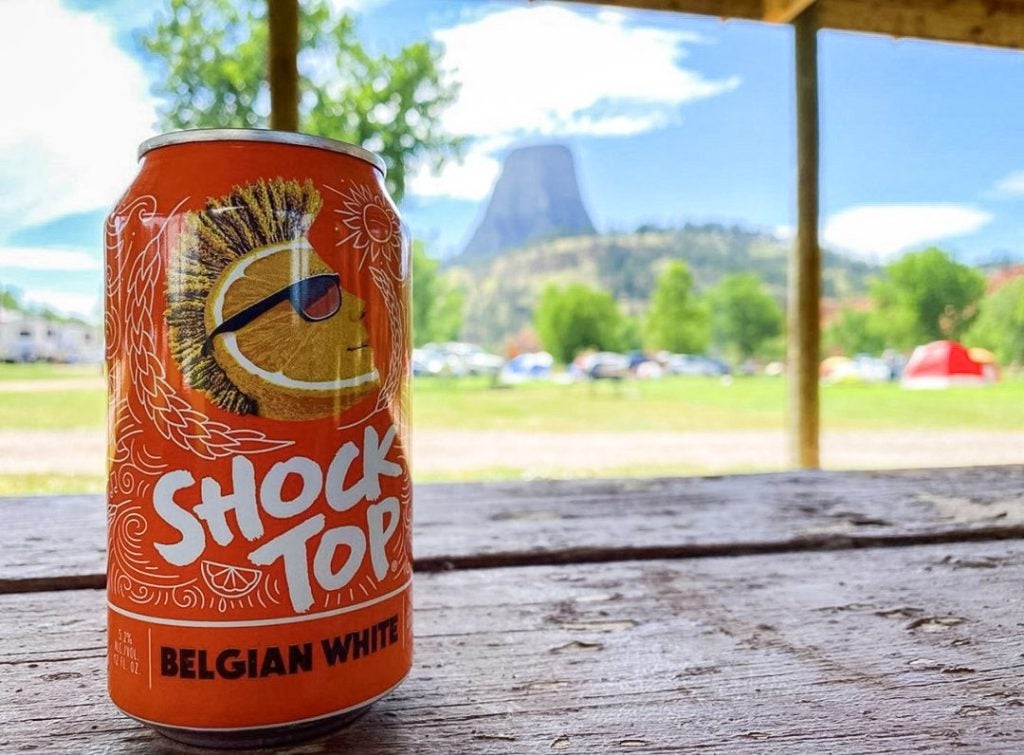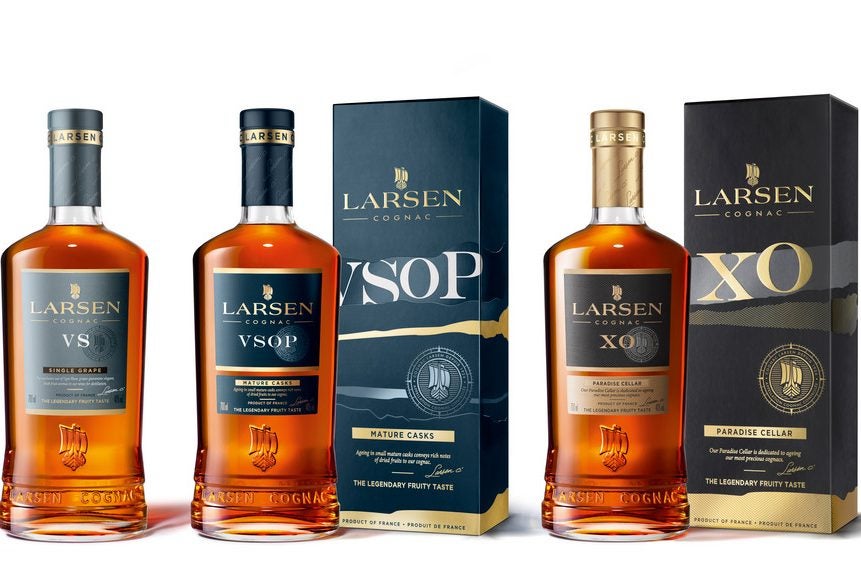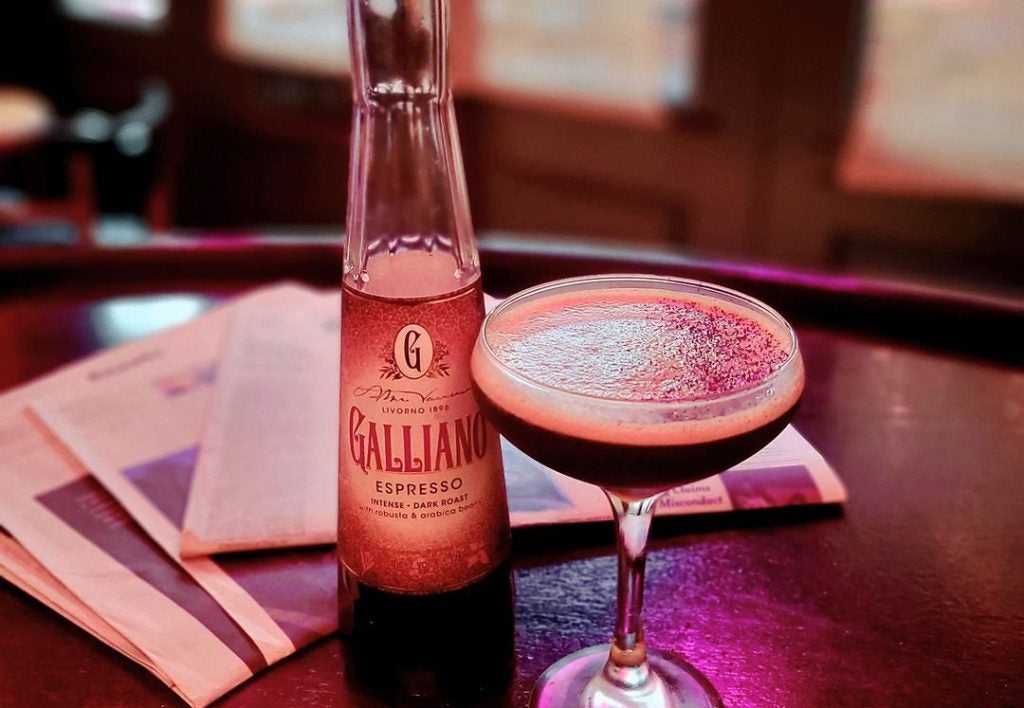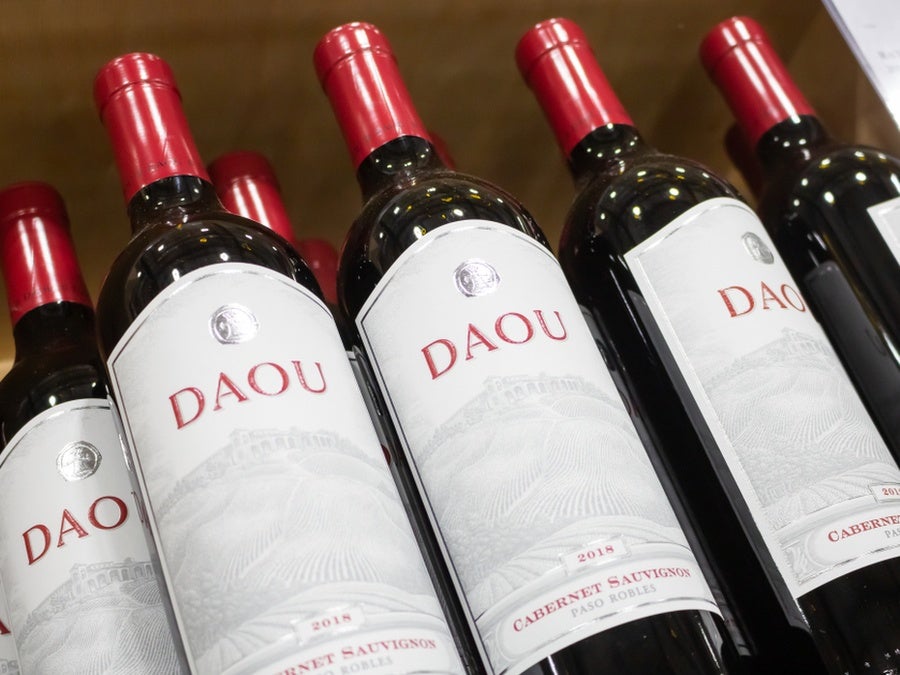With just ten days to go until the end of the year, all the signs are that 2023 was a slower-than-usual 12 months when it came to M&A across food and beverage.
However, there were still plenty of deals that caught the eye, not least in drinks, and here Just Drinks presents the key transactions of 2023.
Campari reaches for Cognac
It was definitely the most striking spirits deal of 2023 and quite possibly across all of beverage when, on 14 December, Campari announced its $1.2bn move into Cognac.
The Italian spirits group swooped for Courvoisier, seen as one of the ‘big four’ Cognac houses, paying what could amount to $1.32bn to Beam Suntory for the brand.
The acquisition is the biggest in Campari’s history and was immediately met with some nervousness among investors given the recent pressure on Cognac sales in the two principal markets for the product – the US and China.
Courvoisier’s own recent performance also added to the question marks hanging over the deal. Nobody in Cognac has been pulling up trees but Courvoisier has suffered more than most. Year-to-date sales to 31 October stood at $148m, down 33% on the equivalent period in 2022; and 2022 wasn’t a great year for the brand, with volumes falling by almost one-fifth in the 12 months as a whole.
Nevertheless, Campari’s outgoing CEO Bob Kunze-Concewitz believes the Aperol owner can breathe fresh life into Courvoisier and is upbeat about the underlying prospects of the Cognac market. “We’re pretty bullish on the long-term perspective of the Cognac category. If we weren’t, we wouldn’t be spending €1.2bn to make an acquisition,” he told analysts after announcing the deal.
Scepticism over Treasury’s $1bn US wine deal
In wine, it was Treasury Wine Estates’ $900m (potentially $1bn) move for California’s Daou Vineyards that caught the eye.
And not just for the price tag. The acquisition also attracted some searching questions from analysts covering the Australian wine group.
On a call with analysts to discuss the deal, TWE chief executive Tim Ford said: “We strongly believe that the acquisition will deliver substantial strategic and financial benefits for TWE and its shareholders.”
One analyst wasn’t convinced. “I don’t know what it is with TWE CEOs in Australia that think you can succeed in the US,” Bank of America’s David Errington told the winemaker’s management. “Why do you need this secondary growth market when you’ve got such an outstanding business in Penfolds? How do you justify paying something 7% less return on capital, you need at least 15% to justify it given the track record?”
Ford and his colleagues defended their corner and set out why TWE had moved for Daou and how the company believed it could further grow the business. “This is absolutely the right fit for our portfolio. It's an absolutely beautiful brand,” Ben Dollard, the president of TWE’s business in the Americas, said.
The move for Daou followed a shift in TWE’s strategic direction as it attempts to face rising costs and a decline in the consumption of cheaper wine.
Tilray’s beer ambitions
The Canadian business has regularly expressed a desire to expand further into beer (and spirits) amid concerns over how long it would take before there is full, federal, cannabis legalisation over the border in the US.
And Tilray’s decision to snap up a clutch of Anheuser-Busch InBev’s beers underlined those ambitions. In August, Tilray, the owner of brands including SweetWater, snapped up AB InBev brews such as ShockTop and Blue Point.

Budweiser brewer AB InBev (which grabbed the headlines for different reasons this year), insisted “winning in craft remains a key pillar of our strategy” but it was clear the group of eight assets was no longer seen as part of that vision.
Citing Brewers Association data, Tilray said the deal would make the company the “fifth-largest craft brewer” in the US, up from ninth.
“In a matter of three years, Tilray has solidified its leadership position in the craft beer industry and we fully intend to be that change agent that reinvigorates the sector,” Tilray chairman and CEO Irwin Simon said.
Despite an overall stagnant craft-beer market in the US, some industry observers believe Tilray can make a success of the deal. Just Drinks columnist Stephen Beaumont pointed to the “clever combination of distribution and marketing” Tilray has used to buck the category trend in the US.
And, in an interview this month with this site, Ty Gilmore, the president of the company’s beer business, highlighted the opportunities the group sees in the market.
Stock Spirits’ mainstream mission
Distillers of all shapes and sizes continue to emphasise their belief in the trend of premiumsation that has driven the spirits market in recent years. Put simply, that drinkers may be sipping less but will pay more for better.
However, the months of persistent inflation and the pressures on consumer spending we’ve seen across markets has caused some to question whether alcohol – a discretionary purchase – really is all sheltered from the economic headwinds.
Premiumisation continues to be a driver of M&A (witness, say, Diageo’s move for Don Papa rum at the start of the year) but 2023 saw some deals at the more mainstream end of the market.
Two by European distiller Stock Spirits were cases in point. In the northern hemisphere summer, the private-equity-owned group announced two acquisitions in a matter of weeks: the purchase of Pernod Ricard’s Clan Campbell whisky and a deal for German spirits business Borco-Marken-Import Matthiesen, the home of the Sierra Tequila brand.
Reflecting on the deal, Just Drinks’ spirits columnist Richard Woodard said Clan Campbell and Sierra “look, at first glance, like the past of their respective categories, rather than the future” – but he also pointed to Stock Spirits’ overall mission to be in its words “the leading mainstream spirits company in Europe by 2027”.
As Richard added: “Both [brands] are still growing and, anyway, Stock’s interest in them is as much about geography as it is about product. If the company is to hit that 2027 target, it needs to break out of its central/eastern European comfort zone and sharpish. Campbell gives it an entrée to France; Borco to Germany.”
There will be plenty in spirits boardrooms who firmly believe in the underlying strength of premiumisation and have their eyes firmly on more high-end parts of the market. However, others will see opportunities to add less pricey brands to their portfolios, especially with consumer confidence looking set to remain relatively fragile.
Farewell to Finlandia
In a similar vein, Brown-Forman’s sale of Finlandia vodka in June had the Jack Daniel’s owner’s efforts to premiumise its portfolio in mind.
The US giant sold Finlandia to Coca-Cola bottler Coca-Cola HBC for $220m and, in a brief statement, president and CEO Lawson Whiting said: “We believe Coca-Cola HBC is well-suited to support Finlandia’s future growth and look forward to watching the continued evolution of the brand in their capable hands.”
Equity analysts covering Brown-Forman saw the benefits of the disposal. “The divestment improves Brown-Forman’s top-line growth outlook,” AllianceBernstein’s Nadine Sarwat said. “Over the last five years, vodka has been the only Brown-Forman segment to experience net sales decline in absolute dollar terms, with whiskey, RTDs, Tequila and even wine in growth.”
She added the sale was in line with Brown-Forman’s wider premiumisation strategy. “Finlandia’s global average price per 750ml bottle is also lower than Brown-Forman’s global average for whiskey and Tequila.”
From a Coca-Cola HBC standpoint, Finlandia was its first major international acquisition in spirits. CEO Zoran Bogdanovic told Just Drinks the deal represented a “unique and specific opportunity” given the close relationship between Coca-Cola HBC and Brown-Forman (the group distributes for the company in nine markets).
“Coca-Cola HBC are already familiar with Finlandia having distributed it widely and have sensed that they can grab a bargain from Brown-Forman,” GlobalData spirits analyst David Harris said at the time. “They’ll be encouraged by the continued strong growth of vodka and will believe that they can reinvigorate Finlandia’s performance.”
Another Coca-Cola bottler makes a move
Coca-Cola Europacific Partners (CCEP) sought to expand in Asia-Pacific this year with a deal to buy fellow bottler Coca-Cola Beverages Philippines (CCBPI) from The Coca-Cola Company.
Among the initialisms, the details of the deal are that CCEP will buy 60% of the business, with Philippines conglomerate Aboitiz Equity Ventures (AEV) holding the rest. The transaction values CCBPI at $1.3bn.
CCEP said the acquisition is “a further step” to the UK-based business as it looks to create “a more diverse footprint” in Asia-Pacific.
CCEP acquired full ownership of its Indonesia business from The Coca-Cola Co. earlier this year. A deal two years earlier for fellow bottler Coca-Cola Amatil gave CCEP assets in markets including Australia and New Zealand. CCEP houses the Indonesian and former Coca-Cola Amatil assets in a division called API.
CCBPI accounts for 43% of the non-alcoholic RTD market in the Philippines and 69% of the sparkling segment, CCEP added, citing Nielsen data.
The Philippines, some observers say, looks a more developed market than Indonesia but CCEP’s management still believes there is growth to be had.
“The great news is that the growth is still there. The category is still growing and sparkling is still growing,” CFO Nik Jhangiani told a Morgan Stanley conference earlier this month. “And if you look at that market, it's about 70% general trade and about 30% modern trade – but modern trade is continuing to grow, [to] which we can bring a whole lot of capabilities. There’s a lot to be excited about, a lot more to talk about as we close the transaction.” CCEP is hoping that will be in the first quarter of 2024.
International Beverage’s M&A one-two
In September, Malcolm Leask, International Beverage’s MD, told Just Drinks reflected on a busy period for the international arm of Thai Beverage. Two deals expected to close weeks apart – the acquisitions of Larsen Cognac and New Zealand’s Cardrona Distillery – had been announced within days of each other. “At one point, it looked like they might even close on the same day,” Leask said. “That would have been interesting.”

Home to Scotch brands including Old Pulteney and Balblair, International Beverage snapped up the Nordic markets-focused Larsen from Anora Group (which hasn’t had the best year) and Cardrona from owners who had only set the business up in 2015.
There was an existing relationship with Anora on Larsen. International Beverage distributes the brand in China and Hong Kong and, despite any immediate concerns about economic conditions in China (or about the Cognac market there), Leask was upbeat about the brand’s prospects when he spoke to Richard Woodard in the wake of the deals.
The deal for Cardrona is the typical big-distiller-buys-up-and-coming-business transaction seen in the industry for decades. “We think we can add real value,” Leask said. “My goal is not to make a massive distillery – that would defeat the point – but to expand to the next stage with slightly more availability in the years to come.”
Another Brown-Forman disposal
As well as Finlandia, the Woodford Reserve and Gin Mare owner announced another significant sale later in 2023.
In November, Brown-Forman sold California winery Sonoma-Cutrer to US specialist The Duckhorn Portfolio.
The deal leaves Korbel as the only wine brand left in Brown-Forman’s portfolio but the structure of the transaction saw the spirits major attain a 21.5% stake in Duckhorn.
“We find the Brown-Forman perspective in this to be quite interesting. While Sonoma-Cutrer has scale, it wasn’t a strategic priority for Brown-Forman and we think will ultimately benefit from sitting within a bigger ‘house of brands’,” analysts at Barclays wrote in the aftermath of the deal.
“As such, Brown-Forman ends up with a solid stake in a business with significant growth runway and can still participate in the upside of the Sonoma-Cutrer brand, which we suspect will also prove more profitable over time than if it remained at Brown-Forman.”
Duckhorn had given signals it was looking for acquisitions, even after buying North Coast Winery and Vineyards in May.
The company sees opportunities to grow Sonoma-Cutrer’s export and D2C sales, as well as cross-selling with the existing Duckhorn portfolio. At Barclays, the analysts saw potential benefits from Sonoma-Cutrer now being part of a wine-focused business. “We expect the brand will benefit meaningfully from having Duckhorn’s more dedicated focus and resource allocation.”
Double Dutch
October saw a deal between two Dutch distillers, with Nolet Group, the family-owned maker of Ketel One vodka, making a move for Lucas Bols.
Nolet has been a shareholder in Lucas Bols since the cocktail maker listed in 2015 and owned 29.9% of the business.
An offer valuing the liqueurs and Tequila business at €269.5m ($284.1m) was backed by Lucas Bols’ management and supervisory boards.
Lucas Bols’ portfolio includes Passoã fruit liqueur, the sparkling liqueur brand Nuvo acquired in June and non-alcoholic spirits brand Fluère, which was snapped up at the turn of the year.
Nolet Group has a 50-50 joint venture with Diageo through which the companies sell and market Ketel One vodka and the lower-alcohol Botanicals range.
“Lucas Bols is gaining a partner with financial power which could open doors to growth that it would be unable to open alone,” GlobalData’s David Harris said. “Furthermore, Nolet has a track record of developing brands as seen with Ketel One. Bols, while popular, has never managed a mainstream breakout moment and this possibility may have factored into the deal.”

The transaction could boost both distillers. According to Dutch media outlet RTL Nieuws, in 2021 and 2022 two-thirds of Nolet’s turnover derived entirely from Ketel One vodka sales in the US, where it shares the distribution rights with Diageo after a deal struck in 2008.
RTL Nieuws pointed to annual accounts filed with the Dutch Chamber of Commerce show that sales of drinks that are 100% Nolet-owned are loss-making.
In 2022, sales of Ketel One in the US yielded a profit of €56.7m, while Nolet’s own activities generated a loss of €6.7m, the broadcaster said.
Counting the (coffee) beans
The final entry in our top ten had something in common with the first: it was announced in the last couple of weeks of the year.
On 15 December, Chobani, the food and beverage group best known for its Greek-style yogurt, said it had acquired US coffee business La Colombe for a sweet $900m.
The deal saw two assets controlled by Hamdi Ulukaya come together.
Ulukaya, Chobani’s founder and CEO, set up the yogurt maker in 2005. He invested in La Colombe, which was established in 1994, in 2015.
The transaction will also see US coffee giant Keurig Dr Pepper convert its shareholding in La Colombe for an undisclosed stake in Chobani.
Keurig Dr Pepper, which became La Colombe’s distributor when it invested in the Philadelphia business earlier this year, will continue to handle its products.
“At a time where the industry has faced challenges to grow sales, Chobani has delivered double-digit, volume-led sales growth, and considerable margin expansion. We have never been stronger or better positioned to chart our next chapter of growth,” Ulukaya said, without citing figures.
“We’ve already made an investment in the coffee category with our creamers and are excited about bringing La Colombe into the Chobani family, and offering the delicious, high-quality cold brew and ready-to-drink craftmanship of La Colombe to a next generation of consumers, powered by a strong distribution partner in KDP.”
Under the terms of the deal that have been announced, Chobani has financed the acquisition with a newly-issued $550m loan, cash and the exchange of Keurig Dr Pepper’s stake in La Colombe.
The Keurig coffee owner paid $300m for a 33% stake in La Colombe earlier this year, becoming its second-largest investor behind majority shareholder Ulukaya. As well as selling RTD and pod coffee products, La Colombe also has on-premise sites in New York, Texas, Chicago, California, Maryland and Philadelphia.
In September last year, Chobani, which already has oatmilk, Greek-style yogurt drinks and probiotic beverages in its portfolio, abandoned plans for an IPO, blaming trading conditions for the decision.









